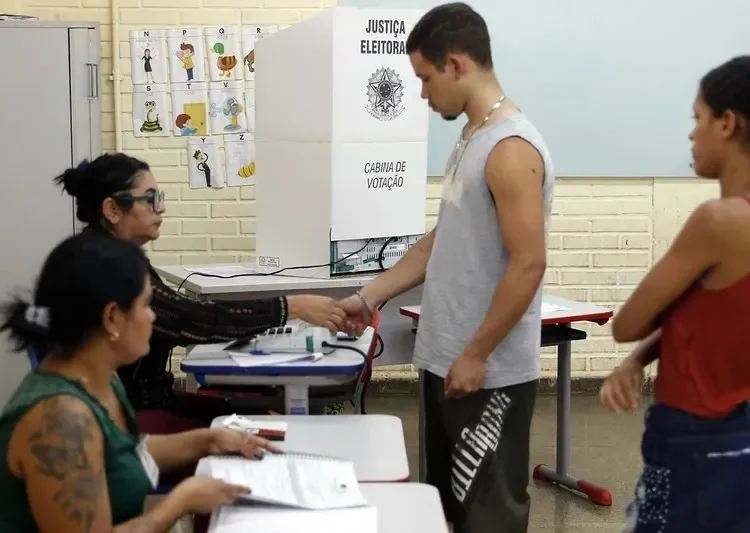In the second round of Brazil's municipal elections on Sunday (27), 33.9 million Brazilians in 15 capitals and 51 municipalities chose who will occupy the mayoral seat for the next four years starting in 2025. The country's municipal elections began on October 6 and had a second round with no surprises.
São Paulo chose to keep right winger Ricardo Nunes as mayor with 59.35% of the vote, defeating left-wing candidate Guilherme Boulos, who was supported by President Luiz Inácio Lula da Silva and finished with 40.65%.
Nunes had the support of former President Jair Bolsonaro and São Paulo Governor Tarcísio de Freitas, who spread fake news on election day, alleging a connection between a Brazilian organized crime syndicate and supposed calls for votes for Boulos.
Porto Alegre, the capital city of the state of Rio Grande do Sul, in southern Brazil, which is still trying to rebuild after the devastating floods in May, has reelected the current mayor, right winger Sebastião Melo, with 61,5% of the votes. Maria do Rosário, a candidate also supported by President Lula, had 38,5%.
During the campaign, Melo was accused of negligence in caring for the pumping stations and drainage system that could have prevented the catastrophic flooding of the Guaíba River. The mayor also faced criticism for proposing the privatization of the Municipal Water and Sewage Department, which serves the city.
Belém, the capital of Pará, which will host the COP30 in 2025, confirmed the big lead among its candidates. Centrist Igor Normando had 56,36% of voting intentions, while Éder Mauro, also supported by Bolsonaro, had 43,64%. Belém faces serious urban environmental problems, with less than 3% of its sewage treated, overflowing canals that cut through the city's neighborhoods, and inefficient garbage collection and disposal.
In the state of Sergipe, Aracaju has elected its first female mayor. Emília Correa, from the same party as Bolsonaro, received 57.45% of the valid votes, beating candidate Luiz Roberto, who had 42.55%.
In Belo Horizonte, the candidate who maintained the lead from the first round, Fuad Noman—who defines himself as neither from the left nor the right—was elected to be the next mayor with 53,76% of the votes, winning against another candidate supported by Bolsonaro, Bruno Engler, who had 46,24% of the votes.
In Fortaleza, the capital of Ceará, Evandro Leitão was elected the new mayor with 50.4% of the vote, beating another Bolsonaro-backed candidate, André Fernandes, who had 49.6%. Leitão won with the support of the popular movements and President Lula.
In Goiânia, former deputy and the wealthiest candidate in the country, Sandro Mabel, will be the new mayor. Mabel won 55.51% of the vote, showing a turnaround from the first round, against Fred Rodrigues, another candidate supported by Bolsonaro, who had 44.49%.
In Natal, right-wing Paulinho Freire, who was leading the latest polls, won 55,3% of the votes, while his opponent, leftist Natália Bonavides, had 44,7%.
In Olinda, with a narrow 4% margin, the historic city of Pernambuco elected Mirella Almeida as the next mayor with 51% of the votes. The conservative candidate defeated leftist councilor Vinicius Castello, who had been advocating for human rights, combating racism, and opposing the far-right in the city, who ended with 48%.
The mayors elected in the 26 capitals, along with all Brazilian cities that elected their representatives in the 2024 municipal elections, will take office on January 1, 2025.




